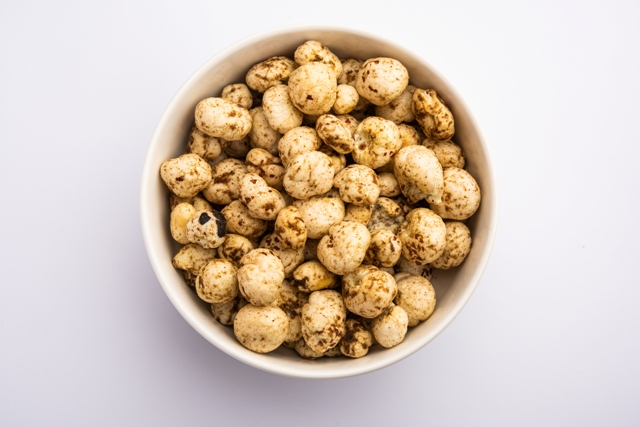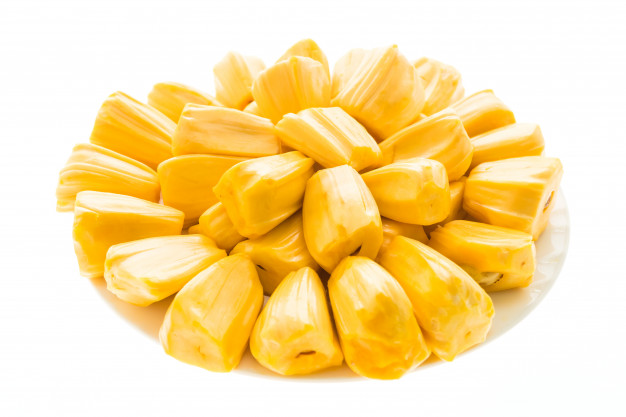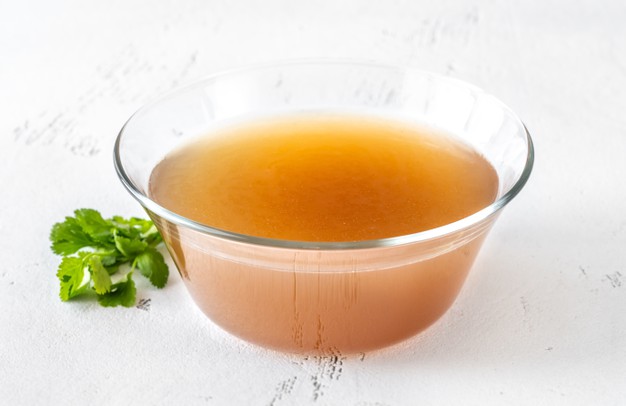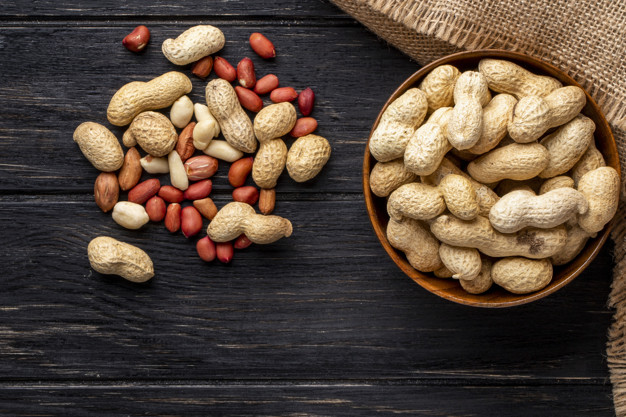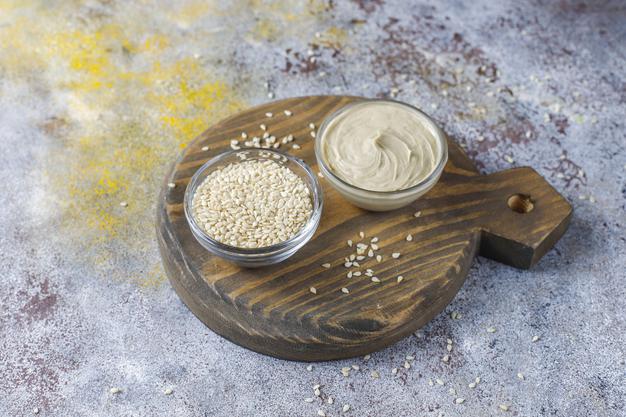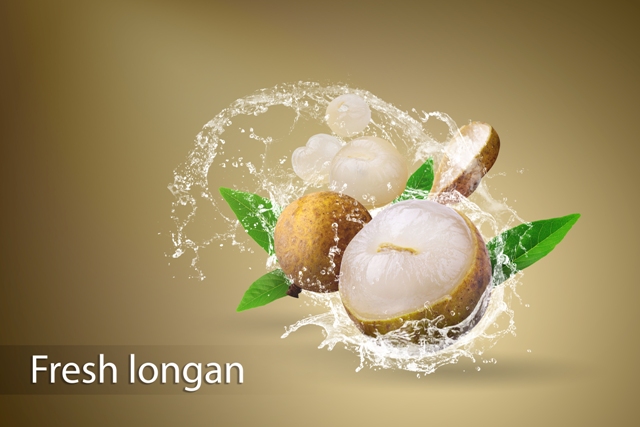Lotus is a popular aquatic plant belongs to Nelumbonaceae family and its seed has been traditionally used for various therapeutic purposes. Lotus seed is loaded with various imperative nutrients that offer several health benefits. Whereas, individual who suffer from wheat allergy may consume lotus seed as it is free from gluten and significantly rich in protein thus it can be well utilized as gluten-free protein supplement.
Biological property
Antioxidant activity
- It is loaded with antioxidants, which help to neutralize free radicals and protect the body from their harmful effects
- It also helps in protecting the body from the detrimental effects of reactive oxygen species and lipid peroxidation, which ultimately decreases oxidative stress and promotes wellbeing
Anti-inflammatory activity
- Its micronutrient and phytonutrient components (especially kaempferol content) are accountable for exerting potent anti-inflammatory activity, which helps to prevent inflammation by reducing the level of inflammatory markers within body
- It is also very effective for improving the symptoms of arthritis as it helps in preventing joint swelling
Anti-carcinogenic activity
- It exhibits powerful anti-carcinogenic activity that helps in reducing the susceptibility of cancers
- Its oxidative stress reducing capacity is also considered as one of the most important factors responsible for decreasing the prevalence of cancers

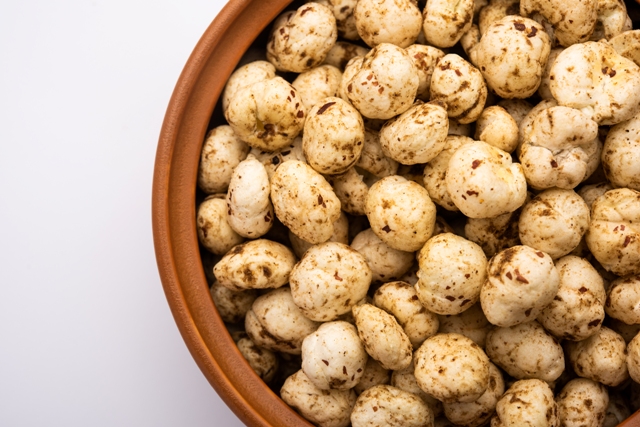
Detoxifying activity
- It acts as an important detoxifying agent and plays imperative role in flushing out all toxins from body
- It is also associated with detoxifying spleen, which is responsible for recycling RBCs and retaining WBCs as a result helps to detoxify the blood
Hypoglycemic activity
- It has a low glycemic index that means it releases glucose slowly within the blood thus it can be easily incorporated within the diet of a diabetic patient
- Its fibre content is also considered as one of the most important substances responsible for stabilizing blood sugar as fibre helps in decreasing glucose absorption from intestine thus decreases postprandial blood sugar load
Health benefits
Role on digestive health
- Fibre content of lotus seed makes it a supper food and it has been traditionally used for centuries as an imperative remedial action for digestive disorders
- It plays significant role in preventing indigestion
- It also acts as laxative and all the credit goes to its fibre content. It helps in promoting regularity by improving bowel movement. Whereas it is also related with increasing the softness and bulkiness of stool as a result helps in easy defecation
- It is very useful for improving colonic health as well. Fibre present in lotus seed helps in reducing the risk of developing diverticular disease as well as colon cancer

Role on skeletal health
- Being a rich source of calcium its consumption is believed to be very beneficial for obtaining a healthy skeletal system
- Calcium present in lotus seed helps in bone mineralization thus plays significant role in enhancing bone mineral density, which subsequently strengthen the bone
- It is also associated with decreasing the prevalence of bone thinning as a result reduces the prevalence of fractures
- Its consumption is also very effective for decreasing the prevalence of osteoporosis
- Magnesium present in lotus seed helps in bone metabolism as well
- Moreover it is better to include lotus seed in diet in order to reduce the susceptibility of developing bone disorders
Role on nervous system
- It contains various important nutrients that help in improving the health and functionality of nervous system
- Its Vitamin B1 content plays vital role in maintaining the cognitive functions of nerves
- Its consumption is also associated with promoting the synthesis of acetylcholine (neurotransmitter), which ultimately helps to improve neurotransmission
- It also helps in protecting every nerve cell from free radical induced oxidative damages as a result helps in improving their functionality
- Whereas its Vitamin bB6 content is responsible for improving brain’s activity
- Protein present in lotus seed plays vital role in the growth and development of brain
- Its anti-inflammatory activity is also related with delaying the progression of neuro-inflammatory events within body, which significantly decreases the risk of developing neurological disorders

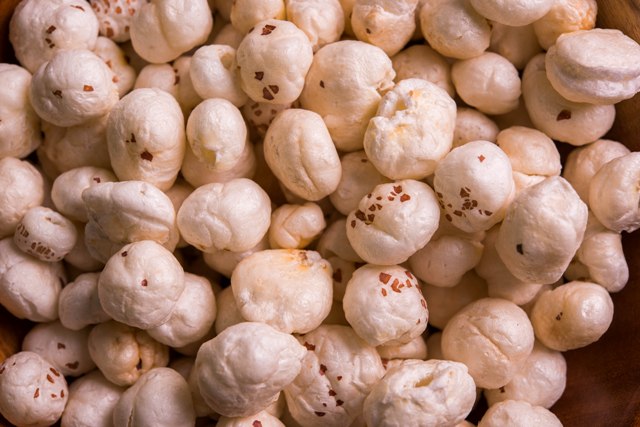
Role on weight management
- Consumption of lotus seed is very helpful for weight reduction as it contains high amount of fibre and proteins, both of which are considered as the key nutrients for weight reduction
- Both the protein and fibre content of lotus seed are accountable for providing a feeling of fullness for a long period of time by delaying stomach emptying as a result helps in decreasing food craving hence prevents over consumption, which ultimately facilitates weight reduction by regulating appetite
- Its fibre content is also responsible for decreasing total fat percentage of body especially helps in reducing belly fat
- It can be well utilized as snacking option for reducing weight as it plays vital role in tackling the hunger pangs without disrupting the diet
Role on cardio vascular health
- Consumption of lotus seed or its extract is thought to be very helpful for promoting cardiac health and functionality as it helps in decreasing cholesterol concentration within body, which is considered as one of the most leading causes of cardiovascular diseases
- Fibre and phytonutrients present in lotus seed play important role in decreasing the concentration of LDL, VLDL and triglyceride within body, which ultimately reduces the risk of developing atherosclerosis hence lowers the prevalence of coronary artery disease
- Its anti-inflammatory activity is responsible for delaying the onset of cardio inflammatory events, which is also accountable for reducing the susceptibility of cardiovascular diseases
- It also helps in decreasing the prevalence of heart attacks and strokes
- Its potassium content plays significant role in preventing hypertension
- Magnesium present in lotus seed also plays imperative role in maintaining normal heat beat thus helps in reducing the prevalence of arrhythmias

Therapeutic uses
It is widely used for various therapeutic purposes, which include –
- It is used as an imperative therapeutic substance for renal health. Its low sodium content is considered as one of the most important factors responsible for promoting renal health. Its consumption is also very effective for reducing the risk of developing renal calculi
- It helps to boost up the overall metabolism of the body and all the credit goes to its B vitamin contents
- Proteins present in lotus seed plays imperative role in improving muscle mass as well as muscle strength and also helps to prevent muscular damages thus improves endurance
- It is also associated with improving respiratory health
- It helps to improve immunological responses of the body too
- It is extensively used for promoting overall skin health. Its anti-aging property is responsible for preventing premature aging and helps in improving skin glow. Whereas it is also associated with providing the skin a younger look
- Its consumption is very effective for reducing the risk of developing infectious diseases too, as it exerts antimicrobial activity

General consideration of using lotus seed
- It can be consumed in grinded, raw, roasted and boiled form
- It is widely available in syrup form or in the form of paste
- It can be added in soup or salads before consumption
- It can be also used for preparing desserts
- It can be used for preparing curries as well
Risk factors
It’s over consumption may lead to various digestive disorders thus it is better to consume it as per recommendation.
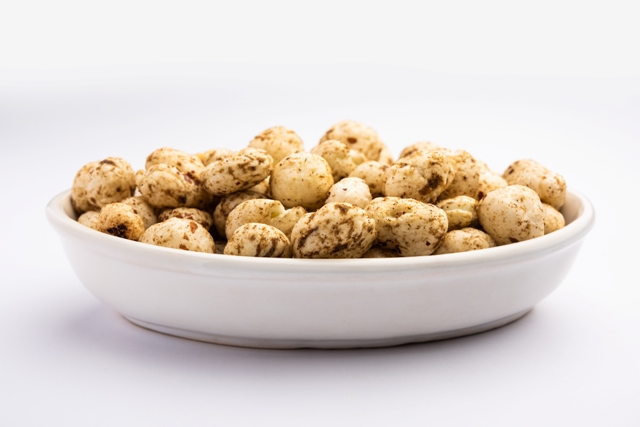
Source:
Cao, J., Yu, X., Deng, Z., Pan, Y., Zhang, B., Tsao, R. and Li, H., 2018. Chemical compositions, antiobesity, and antioxidant effects of proanthocyanidins from lotus seed epicarp and lotus seed pot. Journal of agricultural and food chemistry, 66(51), pp.13492-13502.
Care, H., IBS, I.B.S., Booster, I., Test, D., Dosha, V., Dosha, K. and Dosha, P., Kamal Gota (Lotus Seeds).
Zheng, M., Lei, S., Wu, H., Zheng, B., Zhang, Y. and Zeng, H., 2019. Effect of chitosan on the digestibility and molecular structural properties of lotus seed starch. Food and Chemical Toxicology, 133, p.110731.
Zhu, M., Liu, T. and Guo, M., 2016. Current advances in the metabolomics study on lotus seeds. Frontiers in plant science, 7, p.891.
Zhu, M., Liu, T., Zhang, C. and Guo, M., 2017. Flavonoids of Lotus (Nelumbo nucifera) seed embryos and their antioxidant potential. Journal of Food Science, 82(8), pp.1834-1841.
